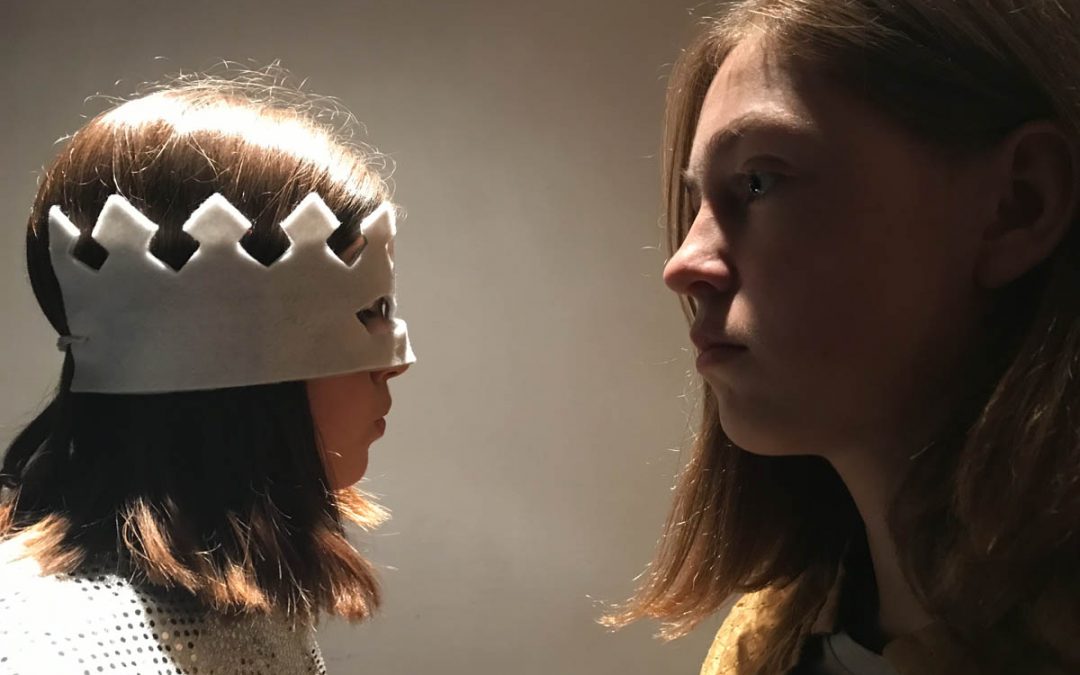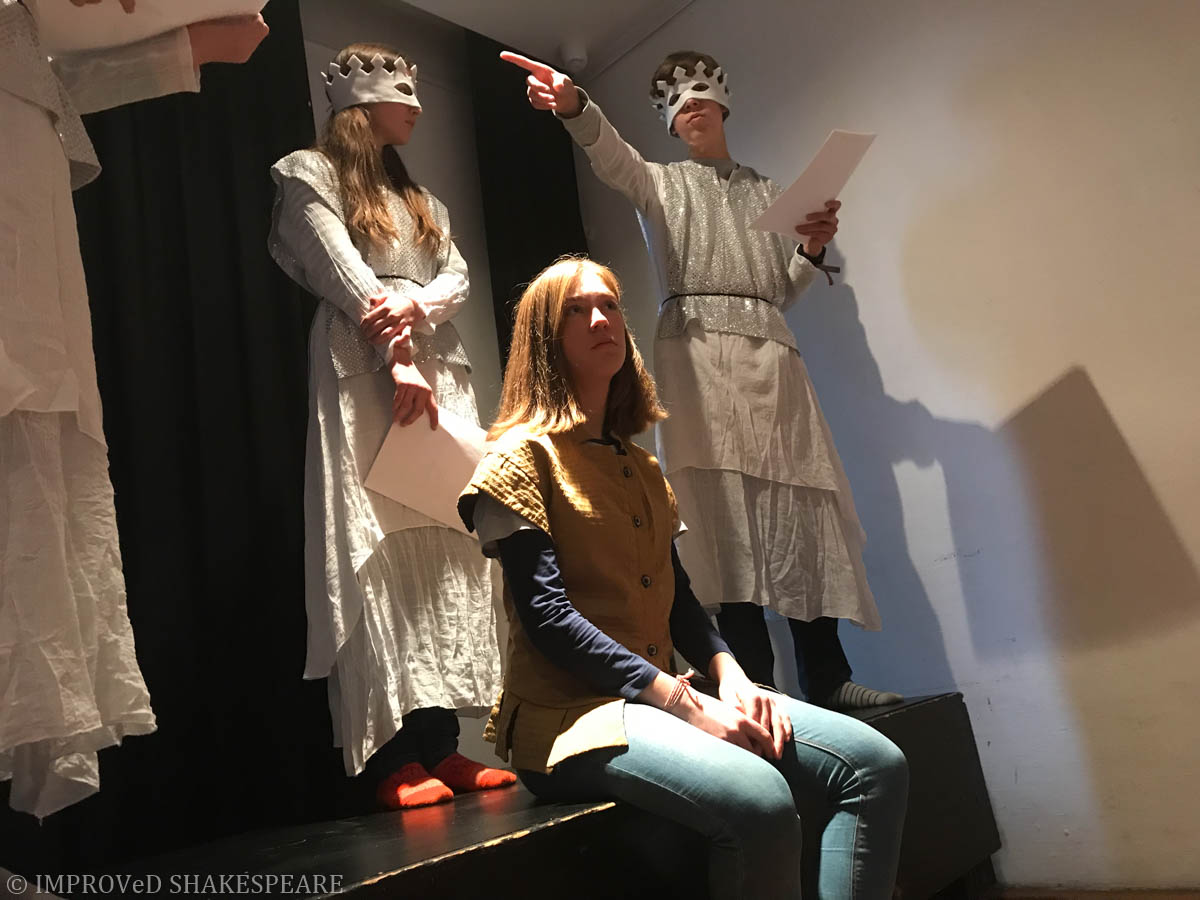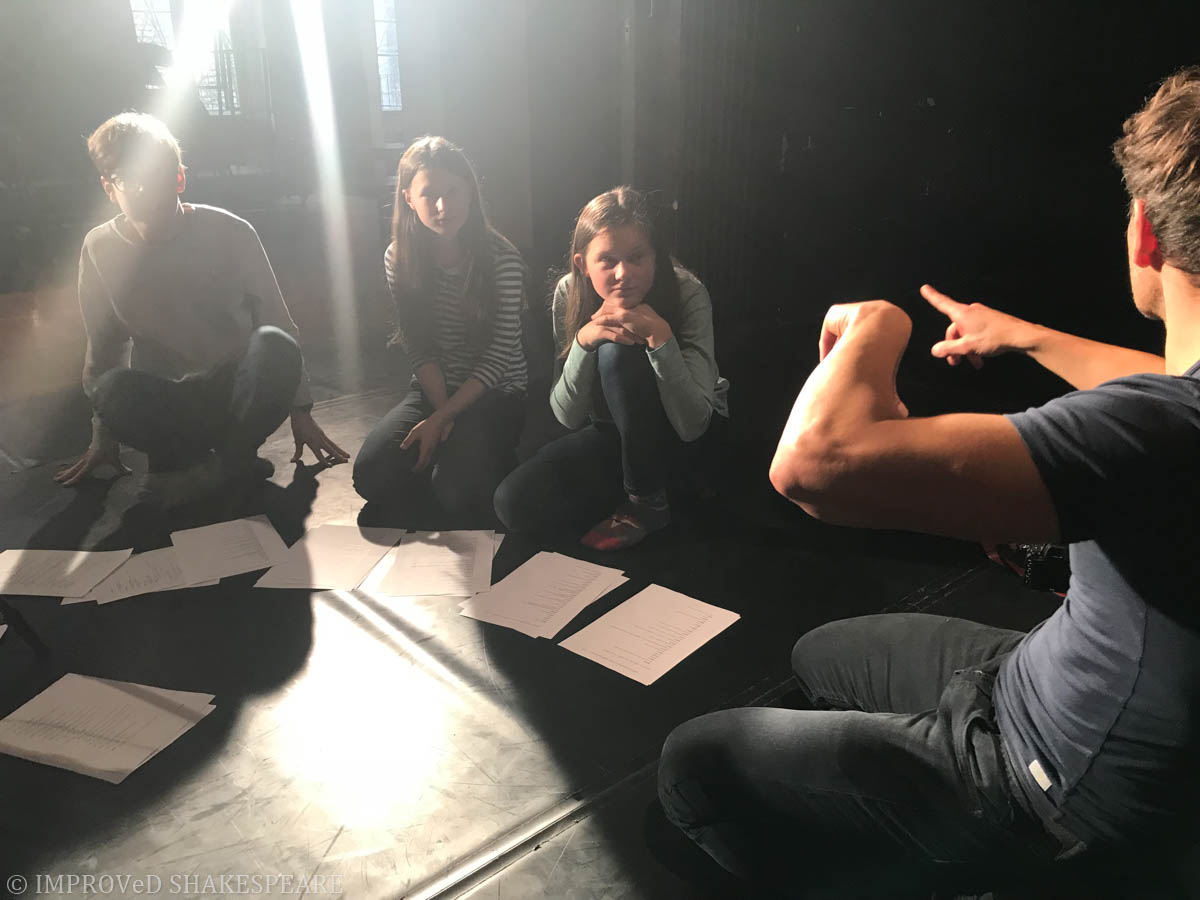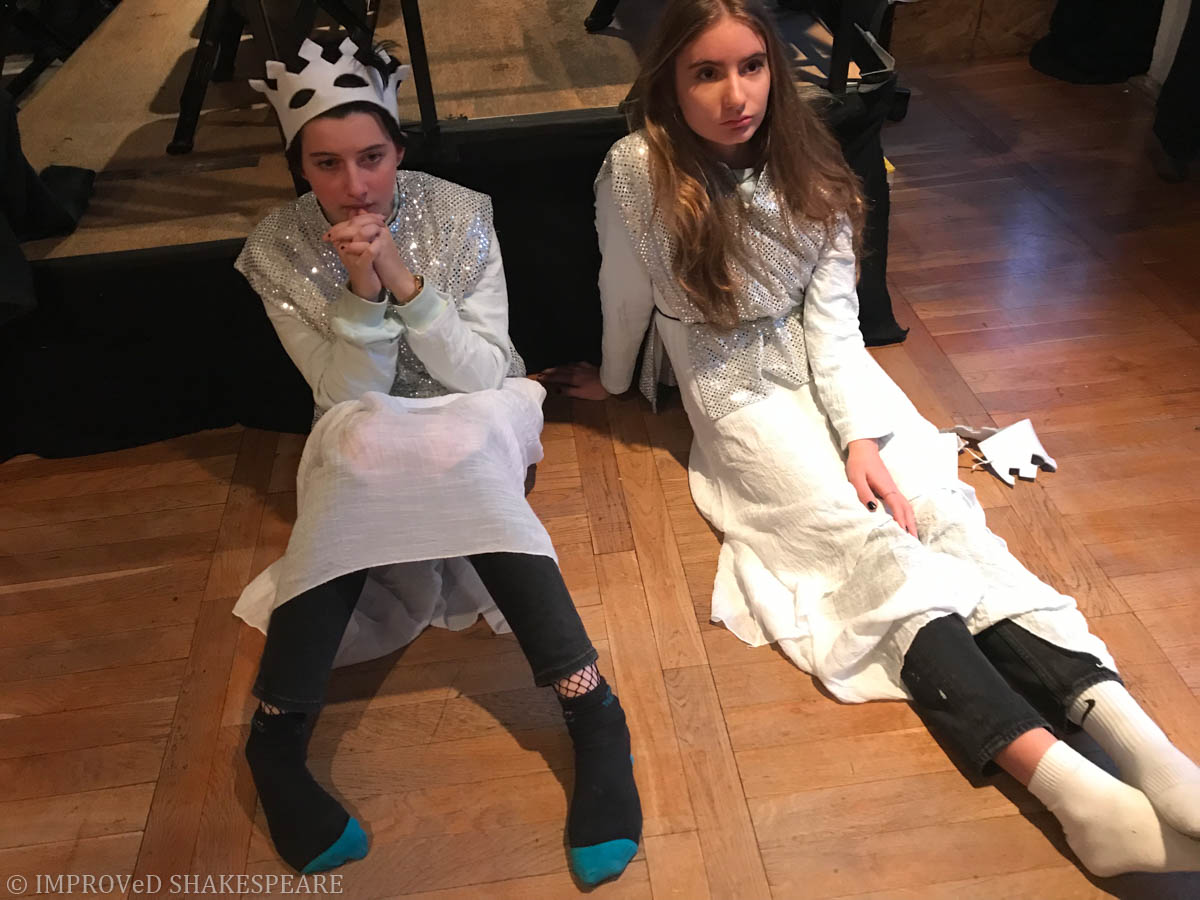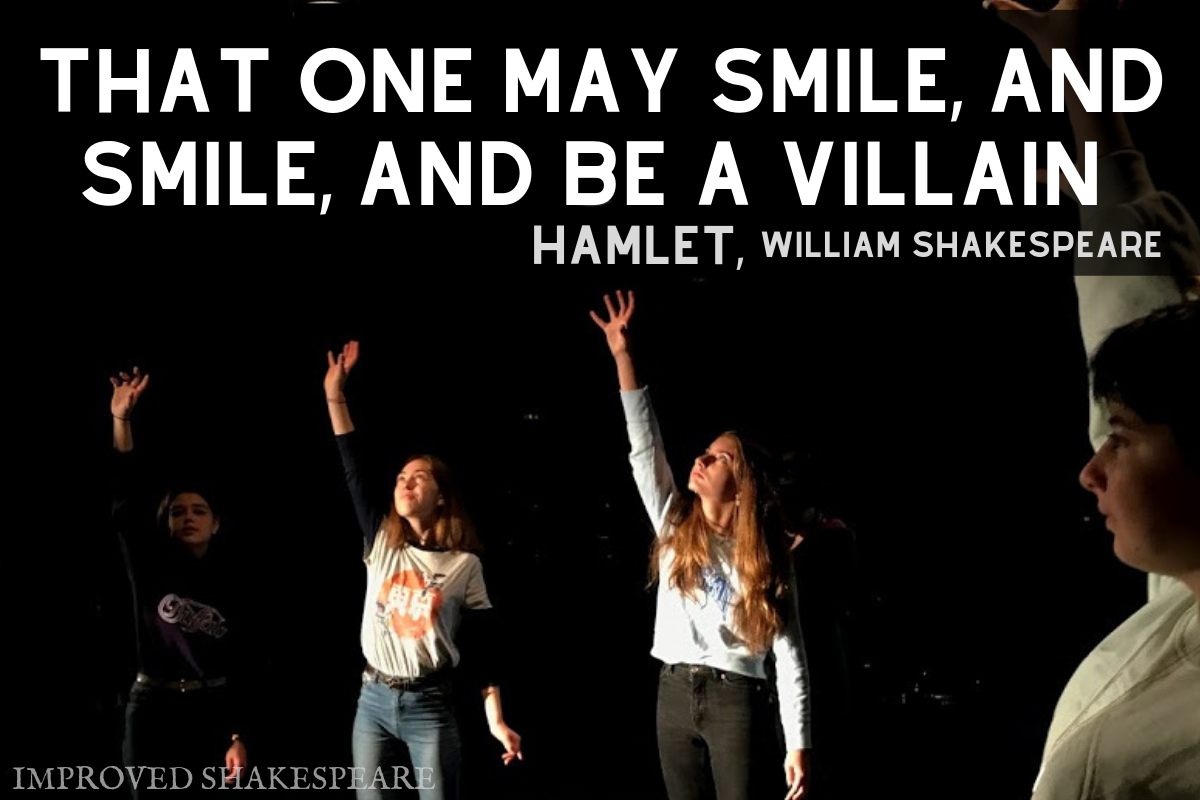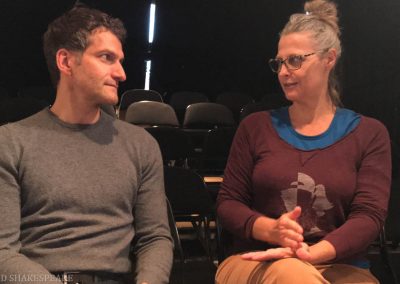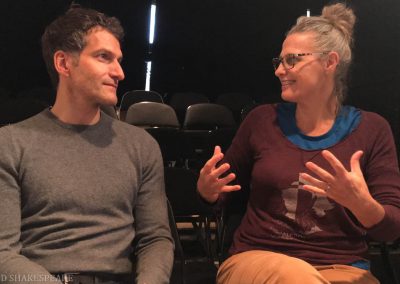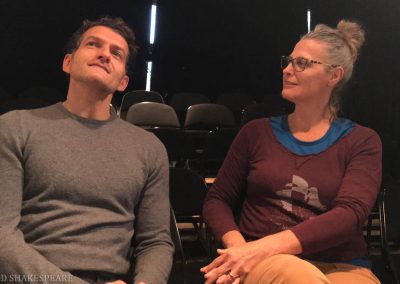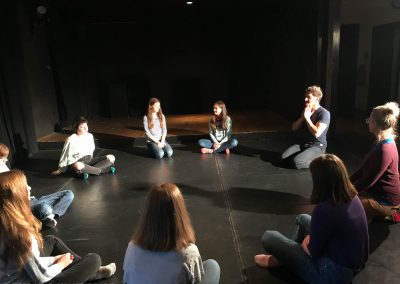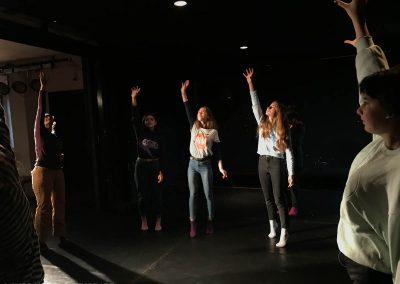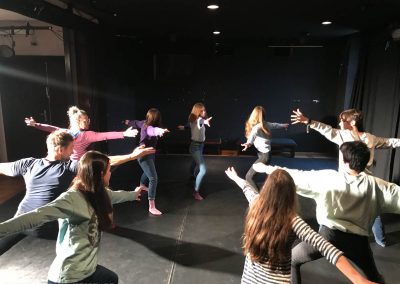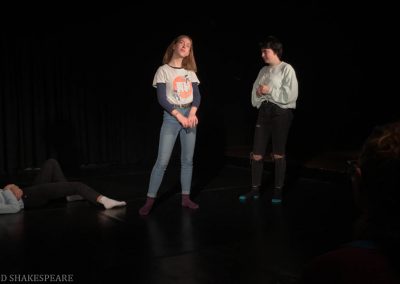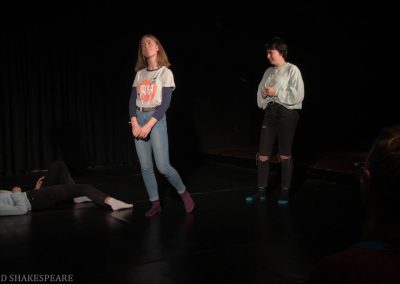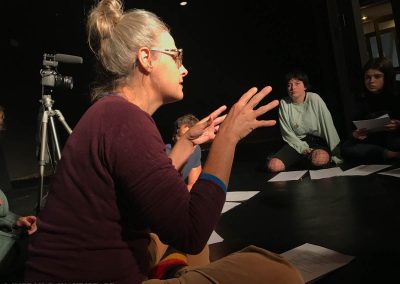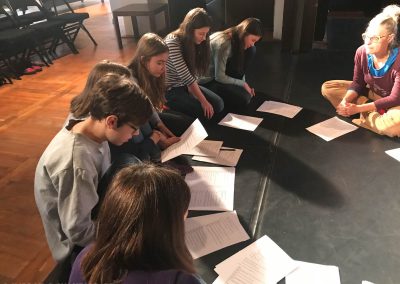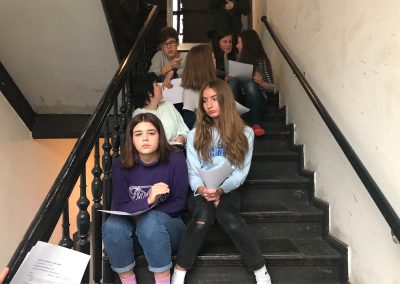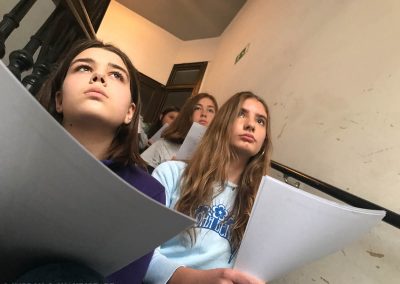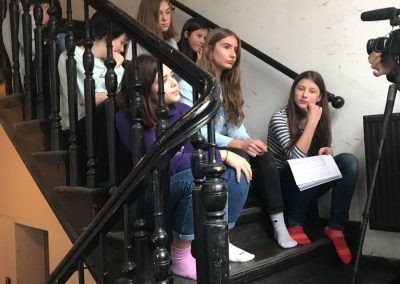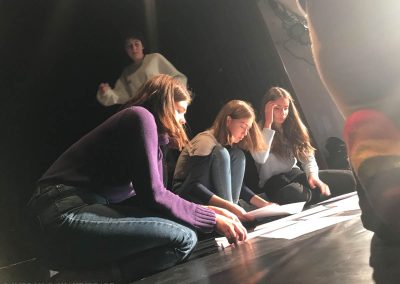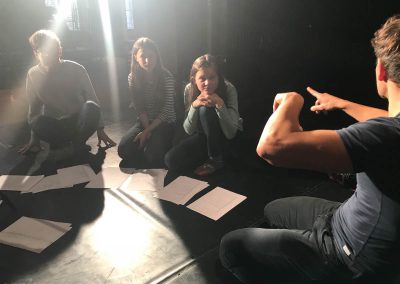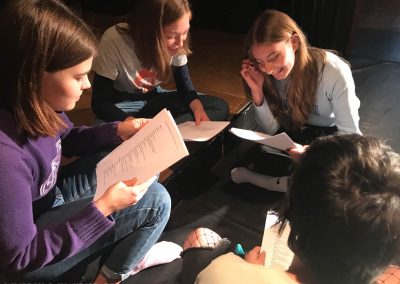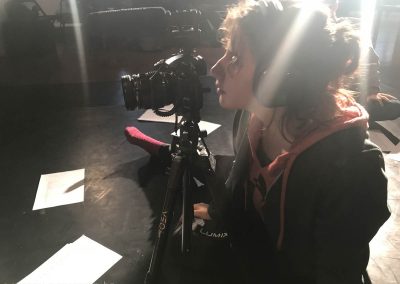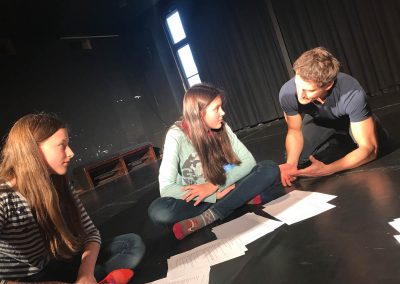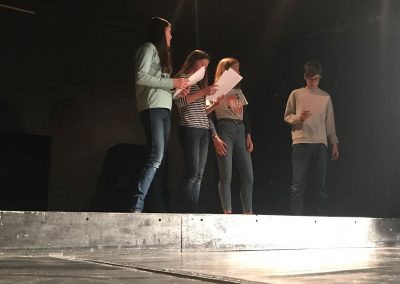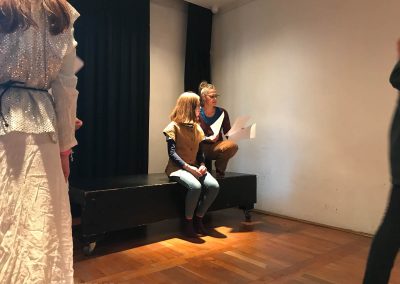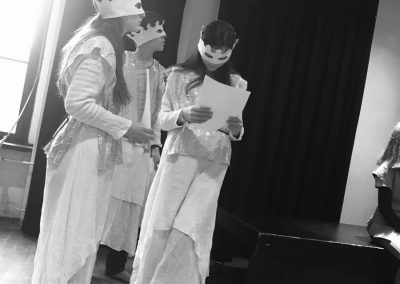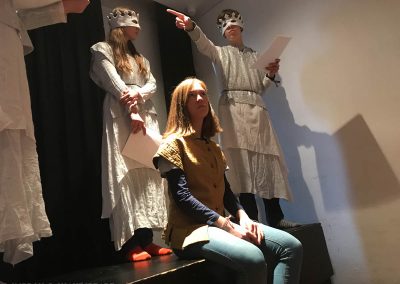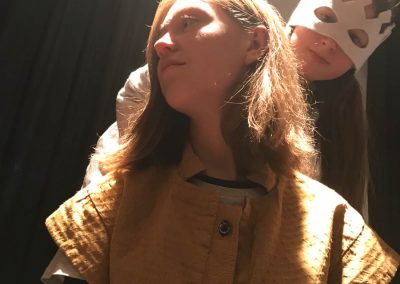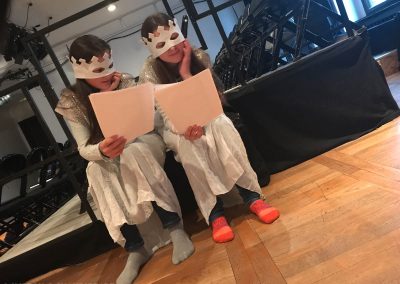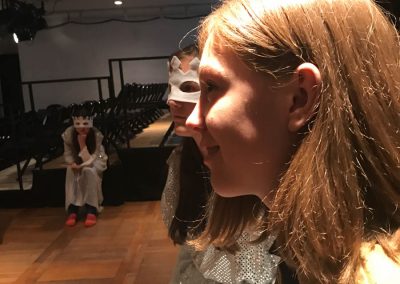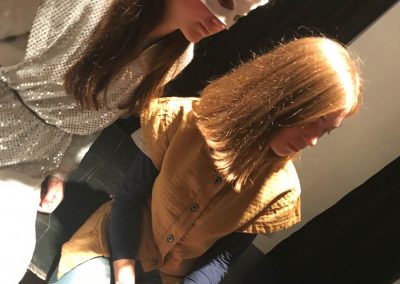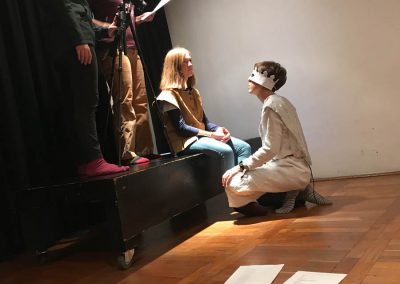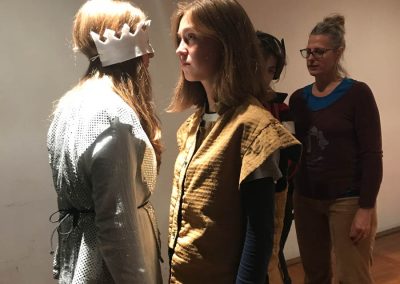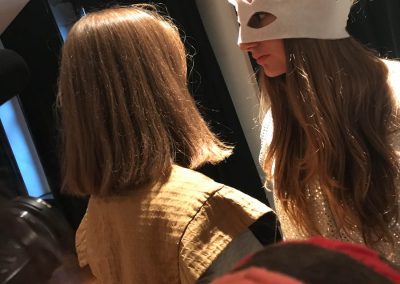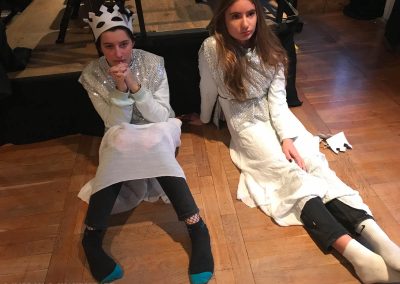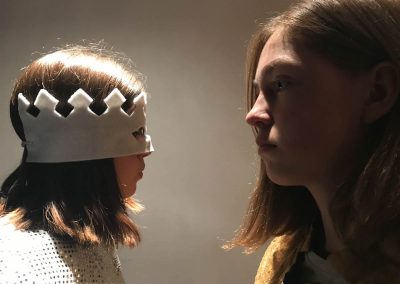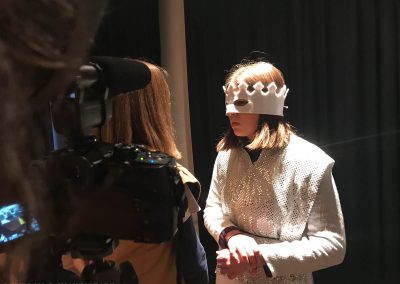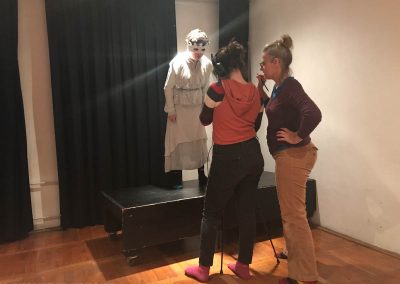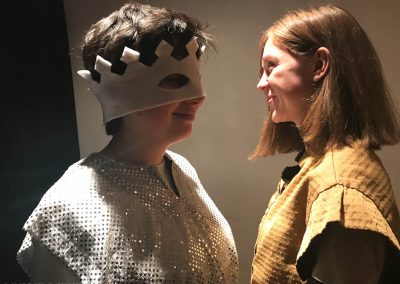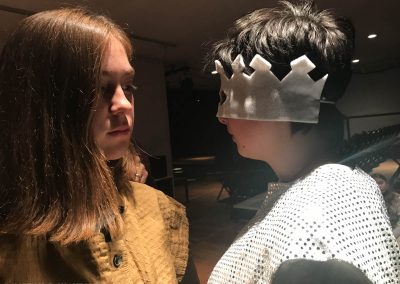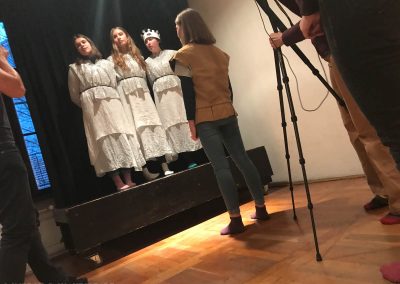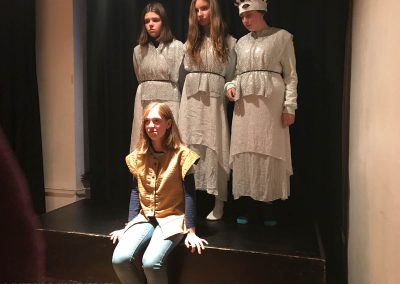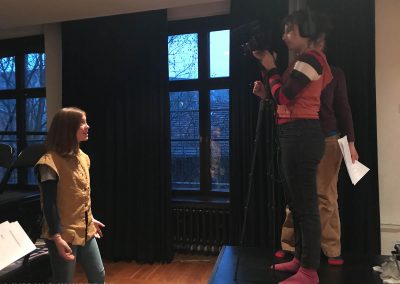After our language barrier in Italy, there was some distress as to whether ImprovEd Shakespeare could find Kids for Global Hamlet in Berlin, Germany. You may find this fact surprising, but some reports state that there are more performances of Shakespeare plays in Germany than in England. What’s more, the first full translation of Shakespeare’s plays was in German. To our delight for Episode 5, we connected with the famed Shakespeare Company Berlin’s youth troupe. That’s right, Global Hamlet is with Shakespeare Company Kids in Berlin, Germany.
[the_ad id=”4426″]
FOR THE LOVE OF SHAKESPEARE
As we ventured into the unknown, my email queries for Global Hamlet participants took on a similar vein. Initially, I attempted to connect with schools, including teachers. Unfortunately, the nature of the project makes it difficult to go into these institutions. For one thing, schools need a much longer lead time. Another reason, legal protections severely limit opportunities for filming. Thus, my hunting narrowed in scope. Subsequently, in my desperation I began to google search “Shakespeare + youth + name of the next city on our tour.” In some ways, this approach felt as hopeless as Hamlet felt in Acts 1-3.
However, in due time, my efforts paid off. All of a sudden, I received a response from Thomas Weppel, the director of the Shakespeare Kids troupe at Shakespeare Company Berlin. He liked the sound of the project, and was interested in collaborating! Thus, Global Hamlet with Shakespeare Company Kids Berlin Germany set about to make its mark in another country.
One thing you quickly realize when working with Kids and Shakespeare is, you need a full bag of tricks. Admittedly, one never knows which exercise, game, or discussion will be the one that clicks with a particular child. Therefore, the more approaches you take, the greater the likelihood you open up the world of Shakespeare to a young mind. Undoubtedly, I was very much looking forward to sharing ideas as well as techniques with Thomas.
[the_ad id=”4426″]
THE SHAKESPEARE PURISTS
In particular, one thing that always made me feel inadequate is hearing noted Shakespeare scholars dismiss the use of crutches like “No Fear Shakespeare,” including their modern translations. Sure, Shakespeare becomes more comfortable to interpret the more you immerse yourself. However, I still begin my process with every Shakespeare play by utilizing these modern interpretations.
Similarly, the push to educate teachers to introduce Kids to Shakespeare using only the unadulterated text, never seemed to work for me. For instance, I recall many a time when my students and I would stare at a verse, wondering what the heck it meant. Accordingly, when I first started adapting Shakespeare scripts, I merely cut lines, especially those troublesome ones lacking a clear explanation. Shortly after, I began to take those irritating parts, then added narration which deciphered the scene. What remained were smaller gems with which the students could more easily understand the language.
And it worked. Evidently, approaching the text in a truncated manner gave us more room to explore, plus appreciate the language for what it is. Nevertheless, I still have this niggling insecurity that most academics find this approach sacrilegious. Imagine my joy upon learning that in translating Shakespeare verse to Deutsche, Shakespeare Company Berlin takes liberties. In short, they contemporize the verses, thus making the Bard more approachable for modern audiences. With this in mind, I can’t help but wonder if our “native” educational approach to Shakespeare is perhaps too “pure?”
[the_ad id=”4426″]
INCLUSIVE SHAKESPEARE
As previously noted, we should not be afraid to mess with Shakespeare, and now, after Global Hamlet with Shakespeare Company Kids Berlin Germany, we have greater confirmation.
In similar fashion to Episode 3 and others of Global Hamlet, we had more students than fit the number of roles. Emphatically, I stress how important it is that every child performing Shakespeare has a chance to speak the language. Teachers, directors, I implore you to adjust the script to fit your needs. For example, the scene for Episode 5 in Berlin called for two characters: Hamlet and the Ghost of King Hamlet. Specifically, we had ten players. So, what did I do? Firstly, I divided the scene into three parts. Secondly, I split the Ghost of King Hamlet into three roles for each actor. Thirdly, I got rid of all those redundant, hard-to-understand lines!
Luckily, no wrathful Shakespeare god watches over us. And if there were, I think he, or she, would be championing me and my efforts instead.
[the_ad id=”4426″]
GLOBAL HAMLET EPISODE 5, PART 1: BERLIN, GERMANY
Later, in our tour, I begin to question scholars, directors, including teachers. Significantly, “Why is the study of Shakespeare important?” For example, I find this question extra pertinent when students who don’t speak English, study Shakespeare in his native language. Generally, we speak of Shakespeare’s poetry. For the most part, academics praise his phrasing, as well as the beauty of the verses. However, I firmly believe that in order to fall in love with Shakespeare, you must begin with the stories. In essence, the stories are how we share our humanity. Equally important, I also think that’s why Shakespeare is so universal.
Unquestionably, it’s very challenging retaining the inherent beauty of a particular combination of words once translated. Accordingly, that’s why we have the common phrase, “lost in translation.” Still, we all understand the loss of a loved one, the injustice of wrongful death, the confusion when we feel lost and scared and alone. Ultimately, this is why Shakespeare speaks to all of us. Furthermore, this is also why, especially for English speakers, we must approach Shakespeare as humans before we study him as academics.
[the_ad id=”4426″]
GLOBAL HAMLET EPISODE 5, PART 2: BERLIN, GERMANY
Conspicuously, when one travels outside the US, it quickly becomes evident, our lack of attention given to languages is abominable. By comparison, Shakespeare probably spoke French, as evidenced by Henry V. Moreover, it’s possible that he spoke some Italian. And he certainly read Latin and some Greek. Due to Thomas’ diligent translations, we were able to create a blend of Deutsche and English for Episode 5 of Global Hamlet.
By the time I fully understood a Shakespeare play, I was in my 20s. It was in a park in Italy. Markedly, they performed the play in Italian. As I have noted, I don’t speak Italian. But I understood it. To repeat, I comprehended what was going on. Undoubtedly, Shakespeare transcends languages because he deals with raw, human emotions. Therefore, when a performance gets to the essence of these emotions, the actual words don’t matter anymore.
Thus, I think you will find the captions unnecessary in Part 2 of Episode 5 with these Shakespeare Kids.
[the_ad id=”4426″]
GLOBAL HAMLET EPISODE 5, PART 3: BERLIN, GERMANY
By all means, sharing classroom exercises, as well as theatre games, is incredibly fun. Hence, as we meet more directors and teachers, I look forward to sharing different approaches. And of course, you can use those methods in your own Shakespeare studies.
While in Berlin, I introduced Thomas and the Shakespeare Kids to my version of the improvisation game, Chain Murder. In turn, Thomas shared an invigorating warm-up called Wolves and Sheep. Forthwith, use this exercise to get everyone present, excited, and energized. After all, it’s hard to focus on Shakespeare when you’re falling asleep.
| Type: | Warm-up |
|---|---|
| Purpose: | To build energy, focus the group, and get minds and bodies ready for learning. |
| Preparation: | Clear an open space in the room. |
| Procedure: | All of the players assume the position of Rocks, curled up on the floor, knees tucked under with heads down. The teacher selects a random player to take on the role of the Sheep. Next, she chooses a player for the part of the Wolf. |
After the selection of the Wolf, play begins. The Wolf chases the Sheep. So that the Wolf can escape, the Sheep maneuvers between the still Rocks, or if that fails, the Sheep lowers herself next to a Rock. When a Rock feels a Sheep settling in, the Rock jumps up as the Wolf. In turn, the former Wolf now transforms into the scared Sheep, looking for an escape. This is a fast-paced game. Players should use their full bodies, including voices to portray the Sheep and Wolf. Their senses should be on high alert as the Rocks. | |
| Side Coach: | First, “No peeking, Rocks!” Next, “Let me hear your sounds, Wolf! Let me hear your sounds, Sheep!” Last, “Use your bodies!” |
| Notes: | Although this game may seem innocuous when it comes to Shakespeare, and in particular, Hamlet, there are distinct parallels. For example, what is Claudius, other than a Wolf in Sheep’s clothing? And doesn’t Hamlet have the same fear of running wildly from a monster while everyone around him has similarly little reaction as a rock? |
[the_ad id=”4426″]
WHERE TO NEXT?
On the subject of presenting Shakespeare in its pure and unaltered form, don’t miss out on the upcoming Bonus interviews with Chris Thurman of Shakespeare ZA and Jane Rony of DramaTies in Paris, France.
NOVEMBER 2018 BERLIN, GERMANY
Enjoy our Gallery of photographs below, Global Hamlet with Shakespeare Company Kids Berlin Germany.
[the_ad id=”4426″]
SHAKESPEARE FOR ALL
Working with Shakespeare in education frightens many. Because Shakespeare experts, including professionals, surround us. Escaping them is difficult. This can be intimidating. Thus, feelings of dread usually accompany the act of presenting, but moreover be introduced to, The Bard.
For this reason, ImprovEd Shakespeare is here to help. Founder and Director, Andee Kinzy, offers the layman’s approach to Shakespeare.
[the_ad id=”4426″]
SHAKESPEARE FOR TEACHERS AND DIRECTORS
If you’re an English teacher, a theatre director, or a well-trained Shakespeare advocate, here you will find inspiration, as well as techniques, for making our favorite bard fun for Kids. Accordingly, we present old, new and improved ideas for introducing Shakespeare to youth for the non-Shakespeare-academic. Among them, we include theatre games, improvisation, tips, tricks, plus activities for using Shakespeare in education.
SHAKESPEARE FOR KIDS
Since 2011, ImprovEd Shakespeare has been exploring The Bard with youth through theatrical performance. Our signature scripts are a mix of modern narration plus original Shakespeare verse. With a focus on the story, including an abbreviated script length, our productions entertain all ages. Moreover, our catalog goes beyond the oft-used Midsummer Night’s Dream, or Romeo and Juliet. And still, young people find much to their delight among many of Shakespeare’s works. Consider subscribing to our YouTube channel for family-friendly Shakespeare videos.
PERFORMANCES
Each fall and spring, ImprovEd Shakespeare develops a new production for live performance. In honor of the traditional Renaissance traveling troupe, during a period of a few weeks, we present Kid-friendly plays at various venues around town. Our Players, between 3rd-11th grade, gear themselves with playful, as well as engaging interpretations of works by the Bard of Avon. Suitable for all ages, each performance runs for about an hour.
Furthermore, these shows are always FREE. However, we gladly accept Donations! Additionally, visit ImprovEd Shakespeare, Shakespeare for Kids by Kids on Facebook, Instagram, & Twitter. And don’t forget to click on our BLOG for the stories behind these videos.
